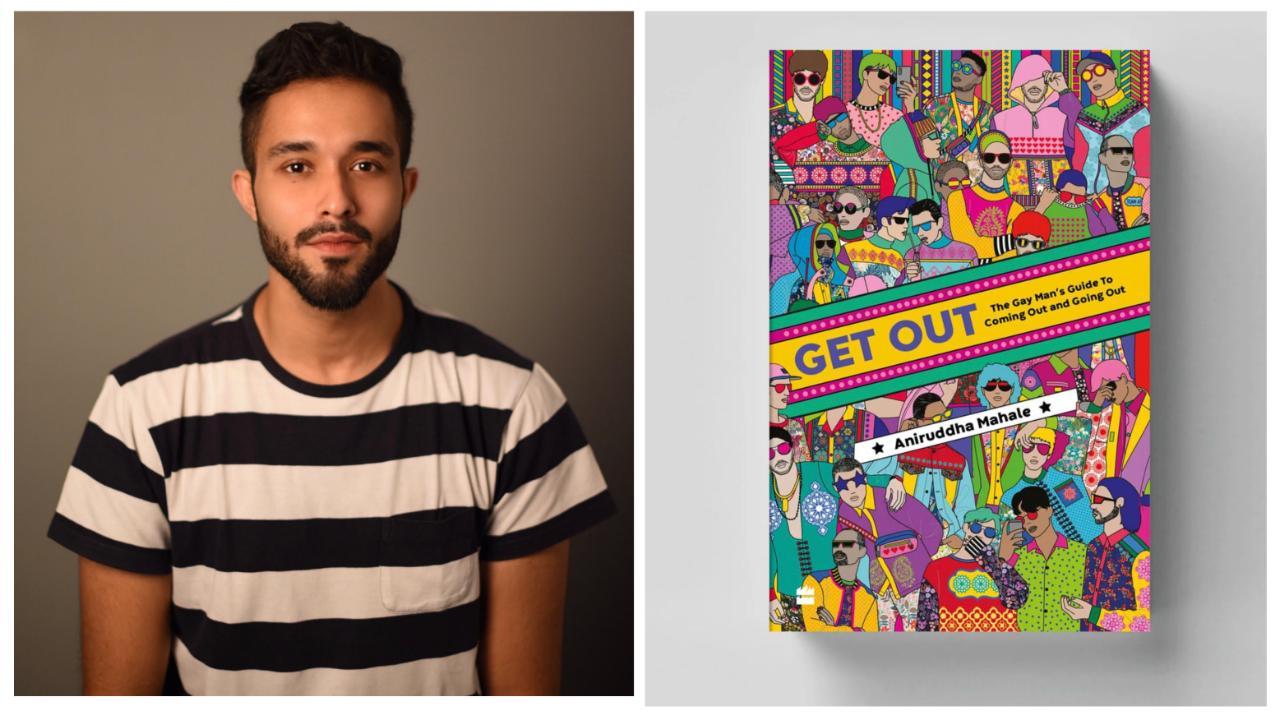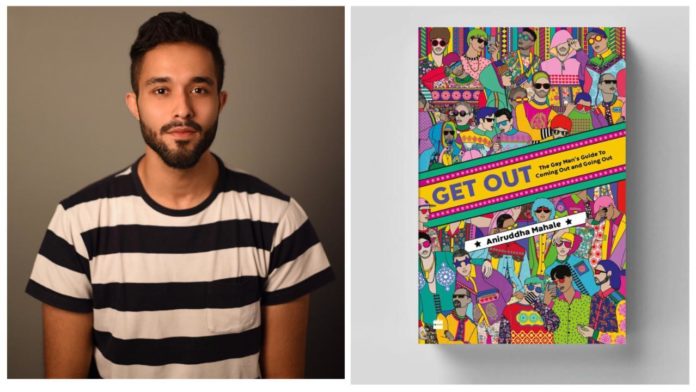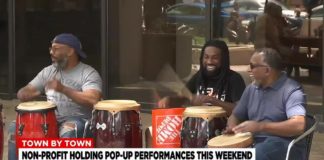Aniruddha Mahale, author of ‘Get Out: The Gay Man’s Guide to Coming Out and Going Out’, talks about his latest book which traces his dating misadventures and doles out advice in his signature eccentric way

Aniruddha Mahale has become a relatable voice of queer culture in India and his book offers advice on how to navigate dating. Photo courtesy: Aniruddha Mahale
Writer by day, dater by night—Aniruddha Mahale, a cis-gay man, has mined his life to churn out lived experiences in his quirky guide to dating titled ‘Get Out: The Gay Man’s Guide to Coming Out and Going Out’. The architect turned copywriter created his popular gay culture blog, The Guysexual in 2016, and has been writing about a range of subjects from fashion to dating applications through a queer gaze. His words have appeared in numerous publications, and have found audiences who find his content relatable. Whether it is an article, or a tweet—his dive into the everyday shenanigans of a gay individual is realistic, and need of the hour.
Needless to say, the world of dating is hard to navigate, add to it queerness, and the complexities are endless. Mahale, took it upon himself to offer some answers through sharing the wisdom he’s gathered over the past nine years of dating. As his book debuts, he speaks of his evolution and process as a writer, perceptions, and dating.
Excerpts:
Your work has become more queer centric as the years progressed. What made you write more about queer experiences? Walk us through your journey on becoming a relatable voice of queer desi culture.
Honestly speaking, I never did think I had an opinion – queer or otherwise. My Instagram is basically an unfiltered feed of everything I feel. I’ve always looked at social media as an outlet of all my emotions – and I have a LOT OF THEM. So when I shot a few queer-friendly videos with Buzzfeed India back in 2018, I couldn’t possibly imagine the outpouring of love.
And then everything changed. These little red boxes of notifications popped up all over my Instagram, and the outbreak of positivity was overwhelming. Over the past few years, I’d had teenagers reach out to me from all over the country – and they all want advice on coming out to their family. I once had a kid send me a long post asking for a step-by-step on how to come out to her parents, and the conversation I had with her post her coming out experience has been one of the most heartwarming moments of my life. It feels like a win, you know? Sometimes I do feel overwhelmed – what if I say the wrong things? What if something doesn’t work out?
What if I don’t have the bandwidth to answer these questions? But I like to take it a step at a time. A voice doesn’t need to be loud or rousing or even enigmatic, it just needs to be heard.
How did you get the idea for this book?
As much as I would hate to sound like a cliche, it all came down to timing. I think I’ve just been lucky about being in the right place at the right time. In fact, the book started as a little something that I wrote for a queer portal a decade ago. That (very memorable) 2400 word essay turned into two anonymous columns and then one night, nudged on by a bottle of wine, I decided to shoot my shot and sent out a (slightly drunken) DM to a commissioning editor at HarperCollins asking her if I could interest her in a book idea
The short version was that it was an exciting insight into queer dating for the world to read. The long version was that it was mostly a memoir of my own dating misadventures – I’d grown up without any clue what living life as a gay man can mean (save for terrible representation in Bollywood) in India. You can get blindsided as you try to navigate your way around your identity and the community. I only had one goal here: If I can even change that for one young, impressionable gay person today – and not let them have the same terrible experiences I did – I think I’d have accomplished something.
Plus, it’s 2022. It’s about time we had more voices on the table.
Dating is often romanticized in the media, which may be the reason why many of us have trouble coping with the reality of it. Your book goes down to the mundane, for example being stuck in traffic on the way to a date. How important do you think laying emphasis on the not-so-perfect bits is?
Contrary to popular belief and popular magazines, dating isn’t easy for anybody. Dating is exhausting. Dating is gut-wrenching. Dating is…tough.
Think about it. Spending hours trudging through traffic to reach your date, only to trudge through hours of monotonous conversation. Picking the right clothes to make the best first impression, but having no luck getting picked up at the bar. Text-dancing with a man for months with no end goal in sight, when you can be dancing to the latest Bollywood remix at your favourite club. So what do we do? Do we just give up and start following meme accounts? Or worse, start a meme account?
No, you go read my book. Jokes aside, it’s the mundane, not-so-perfect things that make it real. The traffic jams and the rainchecks, the ghosting and the bad dates. It’s what grounds us to go on and try again. Cynicism is actually great for prepping yourself up for your love story (never settle, kids.)
Also, if everyone had a Disney-level romance, would we all (still) covet it so much?
According to you, how do cis-heterosexuals individuals perceive queer dating? What is their biggest misconception?
Cis-hets have always perceived dating as a romance novel that’s set in fast forward. They think gay years are like dog years: a year of a gay relationship is 7 years of a straight relationship. Relationships take off, crash and burn at the speed of light.
But that’s the thing. There’s no rocket fuel like that. The biggest misconception that people have about queer dating is that it’s different than heterosexual dating. Gay or straight, we all have the same relationship problems: why won’t they call back? Are they interested? Are they losing interest? What can I do to woo someone? What can someone do to woo me? What do they want? What do I want? What do we want from a relationship? Most importantly, do we even want a relationship?
To very (un)subtly quote ‘Love, Actually’, at the end of the day, we are all just people standing in front of other people, asking them to love us.
Dating life can be one of the most private elements of your life. What was your process behind mining real life experiences for your book?
You’d think that writing a book just based on my personal dating misadventures would be a breeze. I think the biggest challenge was writing this book.
It might not seem like it, but I realized a lot of things about myself while I was working on the manuscript – prodding at memories from your past does that to you. Since a major part of the guide (for lack of a better word) is based on my lived experiences (apart from the occasional anecdote I’ve heard from other gay men), I had to do a lot of self-actualisation while I wrote it. It’s not just a rant about all the ways I may have been wronged, it’s also a confession of all the ways I may have (un)intentionally hurt other people too (and there are a lot of ways I may have unintentionally hurt other people). That’s a lot of trips to my therapist and a lot of drinks I’d had all by myself. Collectively, it was a lot of misery.
Hopefully, if it even helps that one person to not make the same mistakes I did, it would all turn to joy. The book isn’t just a guide to avoid douchebags in the dating world, it’s a memoir (because I speak from great personal experience) that tells you how not to be a douchebag in the dating world.
How do you anticipate feeling once the book is out, and your former paramours figure out they’ve been referenced?
Even though the references are very vague (I’ve skipped names, physical descriptions or any sort of semblance that might hint at who I am referencing), it’s just very…scary. It’s the one part of the aftermath of the book that I am trying my best not to think about.
How did your idea of the ‘first date’ evolve over the years?
There’s no ‘first date’ template in real life. No instruction guide that tells you how it works, no manual that gives you a recipe for the quintessential first date. One man’s first date might be another man’s poison idea of a quick (platonic) catch up.
I struggled with that concept back when I was a young, impressionable gay man. Because there’s no defined template (drinks, dinner, a movie and them meeting friends), there’s never really any definition of what things might lead to. You can imagine the constant confusion (which is also what led me to come up with this manuscript).
Over the years, you learn to create your own template. You make a list of things (or activities) that you like to do and then you just add the person (you’re interested in) as your plus one for all of them. It’s a blank canvas and you get to write your own story.
How would you describe the queer dating scene in Mumbai?
Conventional ways of finding love are nonexistent when it comes to the queer man of Mumbai so we look for every opportunity that comes our way. In fact, as you read this sentence, men here will have devised new(er) ways to meet and mate with each other. There’ll be new apps. There’ll be new websites. There’ll be secret mixers and speakeasy parties. When you don’t have safe spaces to look for love, you turn to the internet.
Since we have to limit ourselves to the technology (and the occasional friend who decides to set us with their one other gay friend) to date, you can only imagine how challenging it can be. We’ve all seen Black Mirror. Technology makes dating apps look like a supermarket. To quote a friend, we’re all packed together like apples and oranges. There are too many options out there.
The good thing is that the variety leaves you spoilt for choice. The bad thing is that the variety leaves you spoilt for choice.
What is the one essential tip you’d give to every gay man seeking to date?
Funny, coming from someone who just wrote a dating guide, but there’s some hard truth involved here. The only rule to finding your happy ending is that you don’t need a significant other to find your happy ending. You don’t need a significant other because you are lonely. (Hint: you need a friend.) You don’t need a significant other because you are bored. (Hint: you need a hobby.) You need a significant other because they add value to your life. You need a significant other because you are ready. For everything else, there’s a credit card, takeout food and your phonebook of friends. One thing I have learnt is that there are three things that are certain in life: death, holiday weight and the importance of loving yourself. Relationship columns and dating guides will tell you that society views singlehood as a state of incompletion. A problem that needs a solution. An anomaly that needs to be fixed. An equation that needs to be balanced. A jigsaw puzzle that needs to be completed. A B-Grade Bollywood movie that desperately needs a plot.
You no longer need to arrange your life around that empty human-sized hole in your heart, because – bigger plot twist – there isn’t one. Settling down doesn’t mean finding a soulmate, romance or even lifelong companionship. It means settling into your own. Get this – Your most fulfilling relationship is a lot closer than you think it is. They’re actually reading this piece right now.
It’s you. Love is love is love. Heartbreak is heartbreak is heartbreak. There’s no mathematical formula, no chemical reaction that needs to be balanced to find true, eternal love. No LHS = RHS when it comes to making a connection. Contrary to popular belief and popular magazines, the most important relationship you’ll ever have in your life is the one you’ll have with yourself.
Once you get your head around that, everything works out just fine.
Also Read: Repeating one’s truth: Why coming out is a never ending process, not a one-time event









